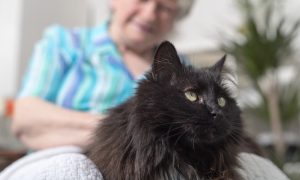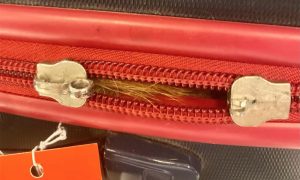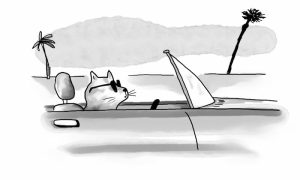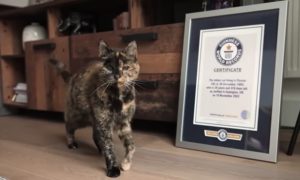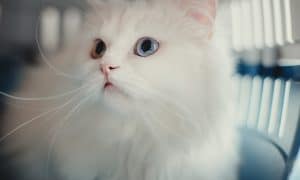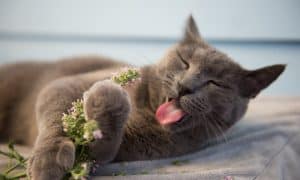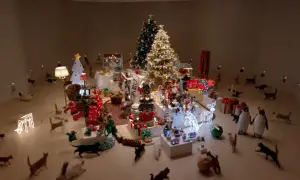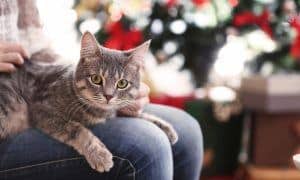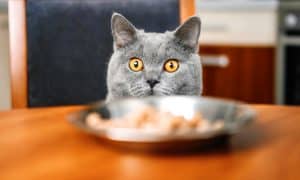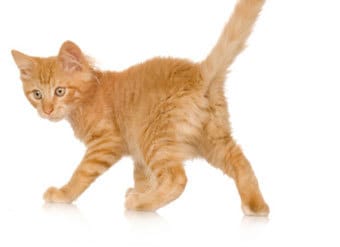 Your cat’s anal glands aren’t typically a topic of conversation. In fact, you may not ever think of them unless something goes wrong. Then, you’ll wonder…What are they? What’s their purpose? And how can I prevent anal gland problems with my cat?
Your cat’s anal glands aren’t typically a topic of conversation. In fact, you may not ever think of them unless something goes wrong. Then, you’ll wonder…What are they? What’s their purpose? And how can I prevent anal gland problems with my cat?
Technically, anal glands are not glands at all. They are small sacs beneath your cat’s anus on the lower left and right sides. The fluid they produce is used by your cat to lend a unique odor to his stool, identifying it as his own. Typically, when they’re healthy, the anal glands don’t have much of a smell that we humans can detect. But other cats can smell them well – and that’s part of how cats recognize each other.
In most cases, your cat will express his anal glands when he poops. Often times, if he’s really angry or scared, he will also express his anal glands and you’ll know by the unmistakeable odor that follows.
Anal gland problems in cats are rare. However, don’t ignore a problem if you think it might be associated with your cat’s anal glands, as it can lead to serious infection and even painful rupture.
How will I know if my cat’s anal glands need attention?
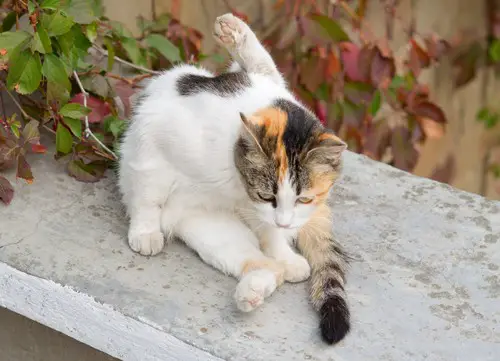
The first sign of anal gland problems is usually a bad odor. If you’ve ever smelled expressed anal glands before, you’ll never forget it. It is stinky in a skunky, fishy sort of way. You may also notice your cat licking or chewing on his back end to relieve the itching or pain associated with an anal gland problem. Or, in less common cases, he may scoot or drag his behind on the carpet. These are all signs that there may be an anal gland issue – typically caused by inflammation that blocks the outflow of the fluid from the glands.
How are they treated?
Treatment at this point is usually pretty easy. The anal glands can be manually expressed, or emptied, by your vet. The vet will use gloved fingers to gently apply pressure to either side of the anus, outside of the glands, and press, expressing the fluid. It can be uncomfortable for your kitty – he’ll probably squirm and announce his displeasure – but it’s usually a quick and painless procedure.
Sometimes the anal gland fluid can become hardened or “impacted”. Impacted anal glands are not as easy to express and usually require sedating the cat to remove the impaction and then administering antibiotics or pain killers after the procedure.
Left untreated, however, anal glands can become infected or rupture, sometimes requiring surgery to repair.
How can I prevent anal gland problems with my cat?
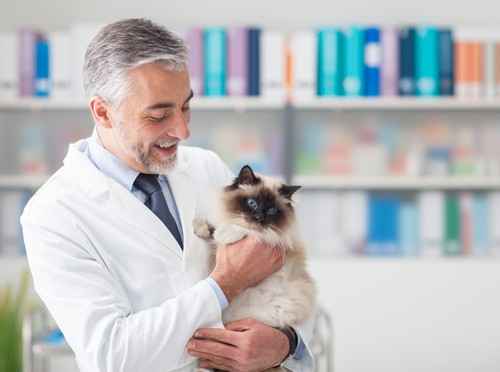
Some cats may go their entire lives without ever needing their anal glands expressed (lucky kitties!) while others may be plagued with chronic problems their entire lives. Older cats seem to be more prone to anal gland problems, but it can affect them at any age.
For example, I have a 9 month old kitten who has had his anal glands manually expressed twice already by the veterinarian. Since it seems he may be developing a chronic problem, the vet suggested adding more fiber, in the form of a quarter spoon of canned pumpkin every day, to his diet. Higher fiber in the diet will produce firmer stools, therefor helping facilitate the natural expression of those sacs.
If your cat hasn’t had any issues with his anal glands, just know the signs and observe any changes in his behavior that might indicate a problem. If you have a cat with chronic anal gland issues, speak to your veterinarian about possible diet changes that might help.


